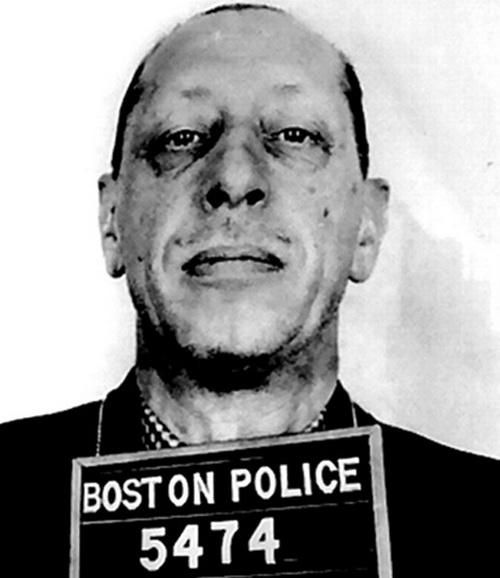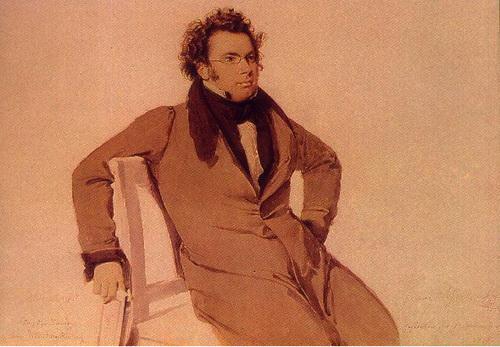1298
Classical musicians and their criminal past (6 photos)
Watch your favorite composers, how they lived.
Some even have their criminal history.
Yes, they were gifted, but quite ordinary, real people, who also made mistakes and endured all the hardships of a difficult life.

1. Ludwig van Beethoven

Charge: Vagrancy
Beethoven was so passionate about his work that banal things like housekeeping, neat appearance, and clean clothes he was not worried. One day in 1820, during a walk, he got lost in the streets Weiner Neustadt and began to look in the window to navigate. And as he looked as completely homeless, a policeman stopped him for vagrancy.
"I Beethoven!" He said at the police station.
Of course, of course, was the answer.
He had to sit in the area until Mr. Herzog, conductor of the city, did not come to free him. For the story, we should say that Beethoven is bad enough reacted to its conclusion. According to reports, the constable even had to appeal to the Commissioner of Police for assistance in the proceedings with the enraged composer. "Herr Commissar," he said, "We have arrested a man who does not give us a break, all the while shouting that he Beethoven».
2. Igor Stravinsky

Charge: Violation of the national anthem
In 1944, Igor Stravinsky led furious Boston police their performance of "The Star-Spangled Banner." As far as they were evil? So much so, that it came to him the next day to "make sure it never will execute it».
3. Franz Schubert

Charge: Revolutionary activity
In the 1820s, in Germany and Austria it was restless. In a society wandered liberal mood and young students with crazy ideas about freedom does not cause people to trust. So when the Austrian secret police has convicted four Franz Schubert and his friends of "insulting the authorities of using foul language," all of them were arrested. One of them, Johann Senn, spent 14 months behind bars. Schubert's most likely saved his growing reputation as a great composer, but he was severely chastised, but in a society where the police approval is required for everything from newspaper publication to the marriage, the record in the police dossier means a lot.
4. Richard Wagner

Charge: Revolutionary activity
During his stay in Dresden, Richard Wagner spent six years writing the opera, and spending time among the radical left. On the pages of «Volksblätter» he incited people to the revolution and during the May uprising in 1849 manufactured the bombs and hand stood at the barricades.
When the revolt failed, Wagner found his government pursues, and went to Zurich, where he lived as a refugee. The charges against him kept him outside of Germany until 1862.
5. Johann Sebastian Bach

The accusation: "Too insisted on his dismissal»
In 1708, Johann Sebastian Bach took over as chamber musician at the court of the Duke of Weimar-Sashen. For five years he was the head of the chamber orchestra, and kept an eye on the position of Kapellmeister. He actually performed the work of the current conductor, who was already decrepit and dying, and its occupation of the post was only waiting for a formal death of the predecessor. Imagine his rage when the post went to an idiot - the son of conductor.
Rival court of the Duke of Anhalt-Kotenskogo saw this error competitor and offered to Bach to join them and take up the post of Kapellmeister at a new location. Bach agreed, and the Duke of Weimar-Sashen immediately avenged him thrown into prison for 30 days.
But during his stay in prison, Bach, without wasting time, wrote the chorale prelude for organ, later published as part of the «Orgelbüchlein», his first organ masterpiece.
Source: mixstuff.ru
Some even have their criminal history.
Yes, they were gifted, but quite ordinary, real people, who also made mistakes and endured all the hardships of a difficult life.

1. Ludwig van Beethoven

Charge: Vagrancy
Beethoven was so passionate about his work that banal things like housekeeping, neat appearance, and clean clothes he was not worried. One day in 1820, during a walk, he got lost in the streets Weiner Neustadt and began to look in the window to navigate. And as he looked as completely homeless, a policeman stopped him for vagrancy.
"I Beethoven!" He said at the police station.
Of course, of course, was the answer.
He had to sit in the area until Mr. Herzog, conductor of the city, did not come to free him. For the story, we should say that Beethoven is bad enough reacted to its conclusion. According to reports, the constable even had to appeal to the Commissioner of Police for assistance in the proceedings with the enraged composer. "Herr Commissar," he said, "We have arrested a man who does not give us a break, all the while shouting that he Beethoven».
2. Igor Stravinsky

Charge: Violation of the national anthem
In 1944, Igor Stravinsky led furious Boston police their performance of "The Star-Spangled Banner." As far as they were evil? So much so, that it came to him the next day to "make sure it never will execute it».
3. Franz Schubert

Charge: Revolutionary activity
In the 1820s, in Germany and Austria it was restless. In a society wandered liberal mood and young students with crazy ideas about freedom does not cause people to trust. So when the Austrian secret police has convicted four Franz Schubert and his friends of "insulting the authorities of using foul language," all of them were arrested. One of them, Johann Senn, spent 14 months behind bars. Schubert's most likely saved his growing reputation as a great composer, but he was severely chastised, but in a society where the police approval is required for everything from newspaper publication to the marriage, the record in the police dossier means a lot.
4. Richard Wagner

Charge: Revolutionary activity
During his stay in Dresden, Richard Wagner spent six years writing the opera, and spending time among the radical left. On the pages of «Volksblätter» he incited people to the revolution and during the May uprising in 1849 manufactured the bombs and hand stood at the barricades.
When the revolt failed, Wagner found his government pursues, and went to Zurich, where he lived as a refugee. The charges against him kept him outside of Germany until 1862.
5. Johann Sebastian Bach

The accusation: "Too insisted on his dismissal»
In 1708, Johann Sebastian Bach took over as chamber musician at the court of the Duke of Weimar-Sashen. For five years he was the head of the chamber orchestra, and kept an eye on the position of Kapellmeister. He actually performed the work of the current conductor, who was already decrepit and dying, and its occupation of the post was only waiting for a formal death of the predecessor. Imagine his rage when the post went to an idiot - the son of conductor.
Rival court of the Duke of Anhalt-Kotenskogo saw this error competitor and offered to Bach to join them and take up the post of Kapellmeister at a new location. Bach agreed, and the Duke of Weimar-Sashen immediately avenged him thrown into prison for 30 days.
But during his stay in prison, Bach, without wasting time, wrote the chorale prelude for organ, later published as part of the «Orgelbüchlein», his first organ masterpiece.
Source: mixstuff.ru























